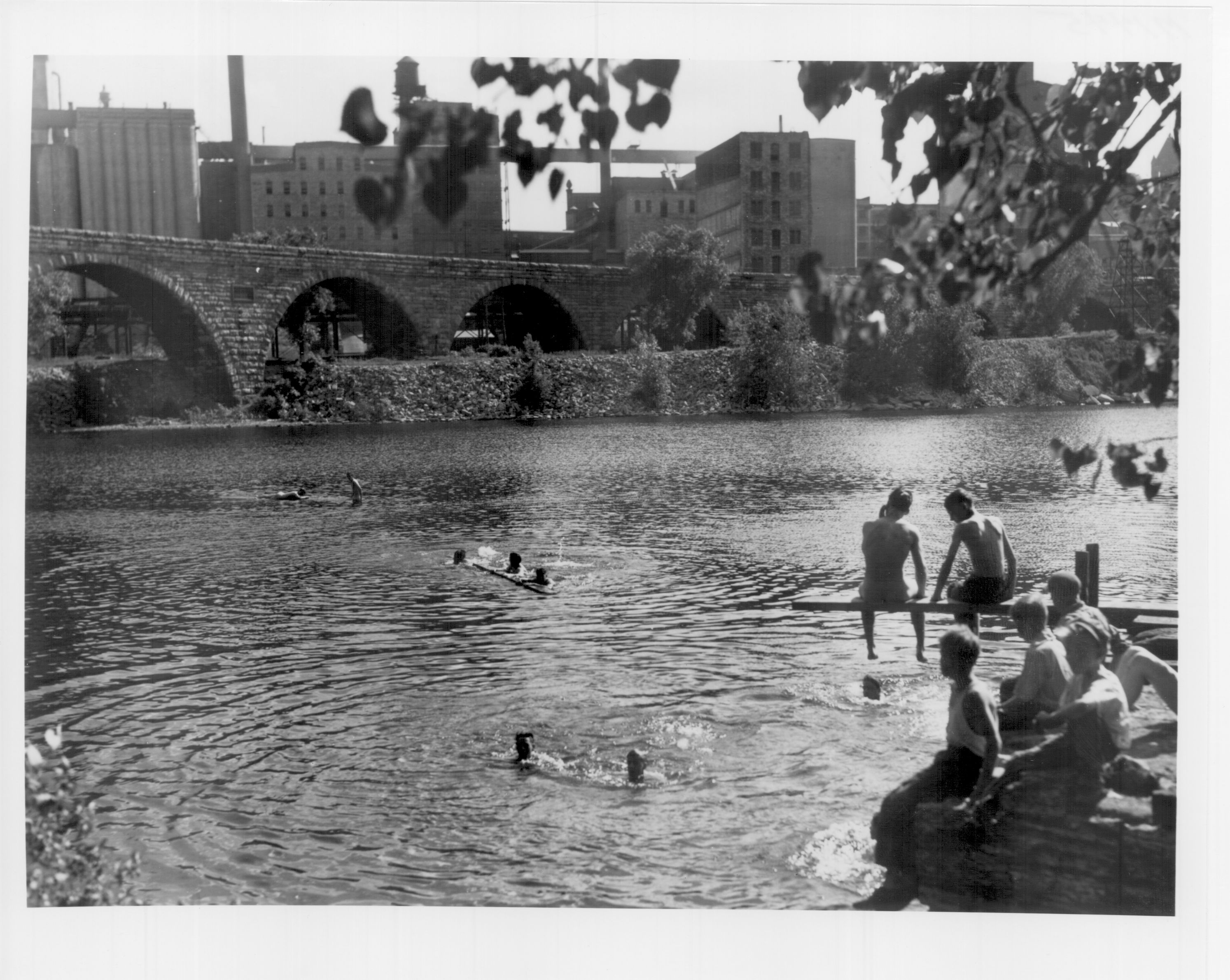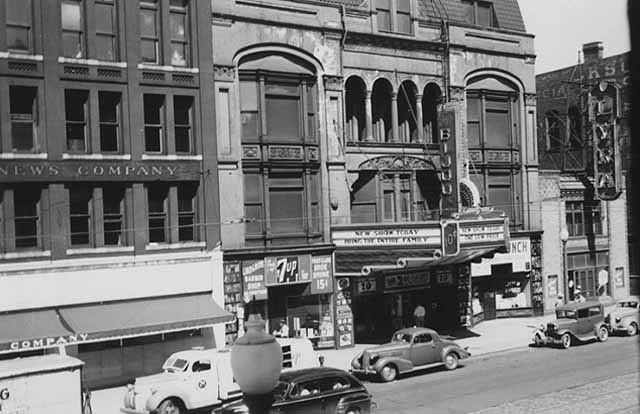
Yesterday the Star Tribune published an obituary for Frank Rog, who was remembered at his death for his long and dedicated leadership of the Roseville Park System. I never had the good fortune to meet Mr. Rog, who died at age 83. But I feel like we were at least acquainted, thanks to his spare, self-published autobiography, Let Me Be Frank, which details his early years in a neighborhood in Northeast Minneapolis that abutted the Mississippi River.
Rog is both cheerful and unflinching as he describes coming of age during the 1930s in this rough-and-tumble environment, the child of desperately poor Polish immigrants. He hated school because “I wasn’t good at anything except for gym,” he declared. “Each and every time I knew I had to give a speech or spell a word or take a test, I didn’t show up.” He haunted neighborhood pool halls and burlesque shows and the caves on Nicollet Island. But mostly he went to the river. “The river was our playground,” he remembered. “The river was where I loved to be more than anywhere–fishing, swimming and throwing stones. Everything you could ever want to do was right there on the Mississippi.”
This sounds idyllic at first. Yet it quickly becomes clear that there is a decidedly dark side to this river narrative, which casts Rog as a twentieth century Huck Finn at the headwaters of the great Mississippi.
Rog relied on his quick wits and natural athletic ability to survive danger and adventure on the great waterway. His brother “taught” him how to swim by leaving him on a pier of the Plymouth Avenue Bridge and telling him to swim back–fighting the current– to a sandbar at the third pier. He “jumped, dived or” was “pushed off of every bridge from Hennepin Avenue all the way up to Lowry Avenue.” He explored sewer tunnels and careened down the water chute below the NSP plant. He almost went over the dam in a boat. Police fired shots at him on the Plymouth Avenue Bridge, after they discovered him using his brother’s gun to kill gulls.
All of his time on the river exposed him to things that most modern readers would agree no child should ever see. “It was terribly polluted,” he recounted. “We saw a lot of life on the river: things dumped, including bodies of all ages. . .and bums.” In his perpetual quest to make money he took terrible risks. He dove to the river bottom to dredge up “chips” or “slugs” that restaurants used in place of money; gathered coal or grain scattered by the railroad tracks; climbed bridges to capture pigeons; collected logs that sank to the bottom of the river. He and his friends were always on the lookout for bodies, which they searched for money. “If there was money, we went to the Bijou Theater, had some candy (using chips for nickels in the vending machines) and watched a double feature cowboy movie.” He remembers that the most likely place to find corpses was “just west of the grates” for the power plant “by the Reddy Kilowatt sign.”
Rog recounts what seems to be overwhelming challenges. He endured perennial hunger and occasional gun shots. He survived near drowning and other physical violence. He suffered through the alcoholism and mental illness of family members.
But in what seems to be a miracle to me, he survived and even flourished. He was a gifted athlete, which won him the support of teachers and coaches. At a young age, he had the good fortune to meet a young woman who became his wife and lifelong partner. Somehow he graduated from high school, went to college and went on to become a community leader. He played a pivotal role in establishing the park system in Roseville, building a youth recreation program meant to provide safe environments in which children could develop physically and emotionally.
Rest in peace, Frank Rog.
Photo of boys swimming was taken in 1935 and is from the Minneapolis photo collection at the Hennepin County Library Special Collections.

One thought on “Frank Rog: Huck Finn of Minneapolis”
Comments are closed.